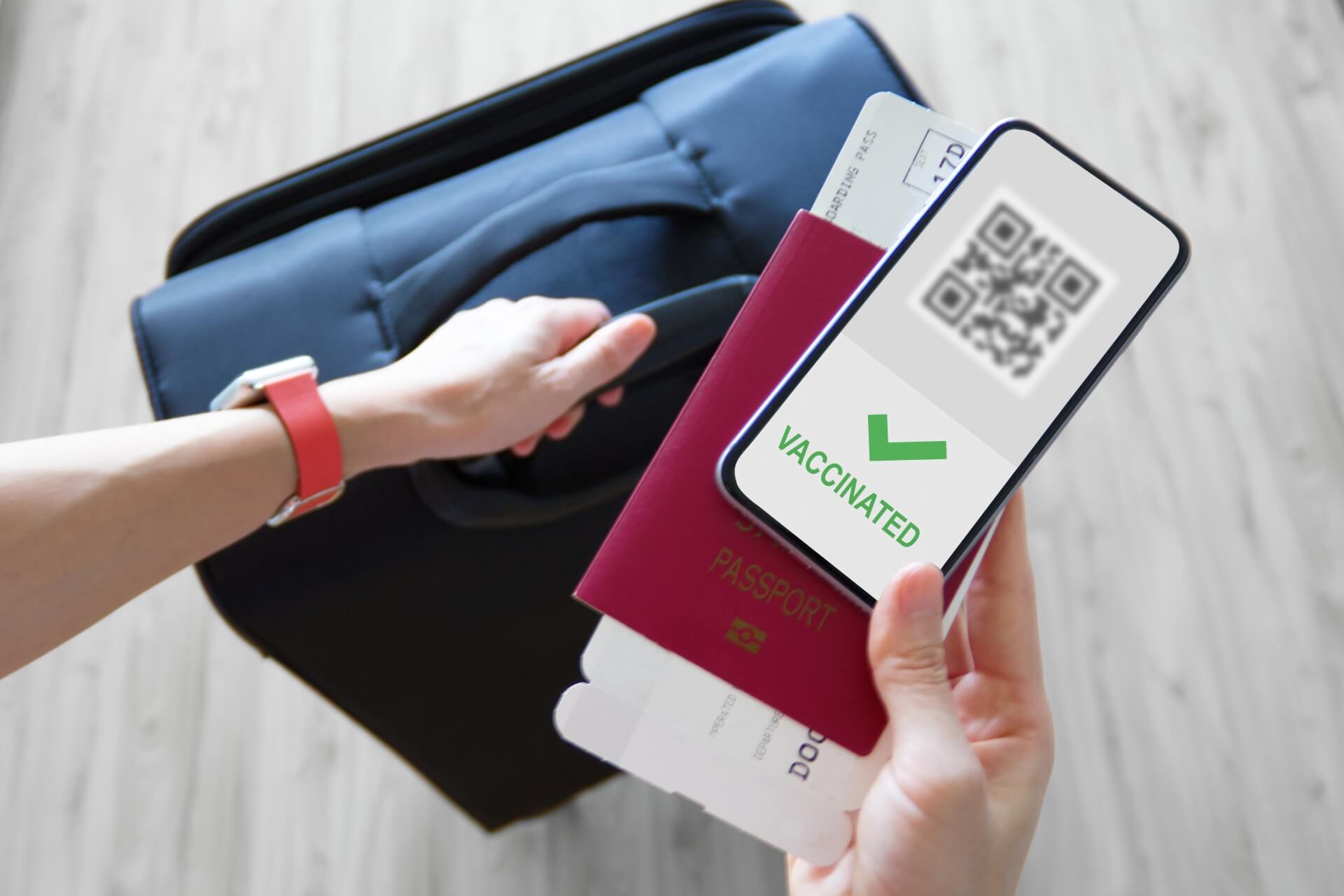FORMALITIES BEFORE DEPARTURE TO VIETNAM
Before leaving on a trip, it is important to get down to administrative tasks, not very pleasant for some, I grant you, but necessary if you want to have an excellent stay.
What to do before leaving?

Your checklist
Vietnam is a beautiful country, you will spend unforgettable moments there provided you respect certain hygiene rules and take a few precautions:
- Prepare your itinerary (with a coach, a travel agency or yourself).
- Check the validity of your passport (valid for more than 6 months after the scheduled return date and with a blank page).
- Appy for a visa pour les séjours de + de 15 jours au Vietnam.
- Check the update of your vaccines (do not hesitate to ask your doctor or on the website of Institut Pasteur). And ask for an international vaccination certificate.
- Do a check-up with your doctor and your dentist (it would be a shame to be bothered by inopportune inconveniences that could spoil your trip).
- Plan an international credit card or plan to obtain a credit card such as N26, Revolut…for your cash withdrawals.
- Remember to photocopy and scan important documents (passport, plane ticket, identity card if necessary) that you will place in a different place than the rest of the papers.
- Plan your international driving licence (if you decide to rent a motorbike on site).
- Book your first hotel night if you are not traveling with a travel agency.
Advice: Before leaving, don’t forget to check the recommendations of your embassy in Vietnam.
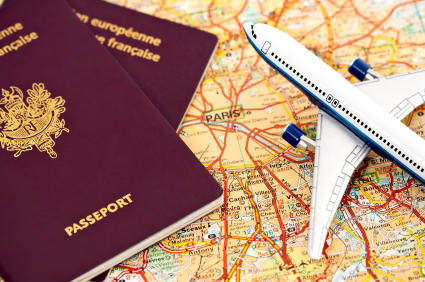

Visas — UPDATE 07/22/2022
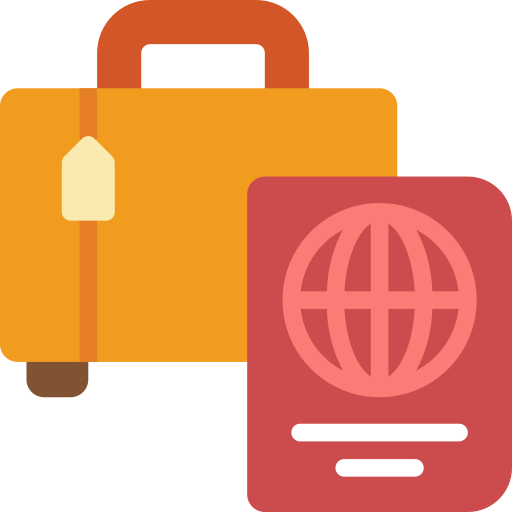
Before the coronavirus pandemic, the validity period of a Vietnam visa depended on the type of visa you were applying for. You could choose between the 15-day visa exemption, the electronic visa requested online, an « on arrival » visa with an invitation letter, provided by travel agencies, or the physical visa sticker to be obtained at the embassy.
Vietnam entry visa: Vietnam entry visa policies before the pandemic have been reinstated.
Today, not all visa types are valid again. But you will find below, what is currently put back in place or will be in the next weeks or next months.
✔ 15 Day Visa Waiver — UPDATED AND VALID AGAIN
As was already the case before the health crisis broke out, tourists from certain countries can now benefit from a visa exemption valid for 15 days from their entry into Vietnam. A proven measure. The fact is that before the pandemic, visitors from Belarus, Denmark, Germany, Finland, Italy, France, Spain, Norway, Sweden, UK, Russia Japan and South Korea had been visa-free for up to 15 days. This measure is being reinstated from March 15, 2022 until March 14, 2025 for these 13 countries.
It is not possible to cumulate 2 visa exemptions of 15 days. An incompressible period of 30 days must be observed between 2 exemptions.
✔ E-visa (Max 30 days single entry) — UPDATED AND VALID AGAIN
The most common variant and also the easiest to obtain is the electronic visa (e-visa), which is valid for 30 days. The Vietnam e-visa can easily be applied for online. Here is the official link of the Vietnamese authorities for the e-visa (➡ e-visa vietnam). You will therefore not need to go to the embassy beforehand or queue on arrival to pay the stamping fee. The validity period of your e-visa begins on the date you have indicated in the online application form. Your stay can last a maximum of 30 days, less the number of days that have elapsed between the start date of your stay specified on your e-visa and your actual arrival.
It can only be used for a single entry. If you want to go to Vietnam several times, you must apply for a visa at the embassy for a multiple-entry visa or even with a travel agency to obtain an invitation letter.
This is not an « on arrival » visa and therefore does not require a visit to the embassy or consulate. Therefore, the e-visa is also granted quickly, usually within a week. An e‑visa is also cheaper than the “on arrival” visa.
It is not possible to combine 2 e-visas. An incompressible period of 30 days must be observed between 2 e-visas.
✔ Visa « on arrival » (1 to 3 months with single entry or multiple entries) NO LONGER VALID FOR THE MOMENT EXCEPT FOR CUSTOMERS HAVING TAKEN A TOUR IN AN AGENCY.
There are four separate so-called « on arrival » visas for tourists. Two variants are valid for one month and two variants are valid for three months. Each variant has a single-entry version and a multiple-entry version. In the case of multiple entry variants, the visa is valid for an unlimited number of entries made during the validity period of 1 or 3 months.
The « on arrival » visa is a visa that must be issued by a travel agency for ITS clients. However, many agencies have specialized in the sale of this visa without selling circuits. This is the reason why this visa is currently suspended. ONLY the agencies having a signed contract and having the AR plane tickets of their customers can make the request with the Vietnamese immigration services. It is a binding procedure.
Moreover, since 2018, the Vietnamese embassy advises against using « visas on arrival ». If you want to stay in Vietnam for more than 30 days or because you want to go there several times, in this case, submit your application directly to your embassy.
✔ Classic visa-vignette (1 to 3 months with single entry or entries) — UPDATED AND NOT CURRENTLY VALID
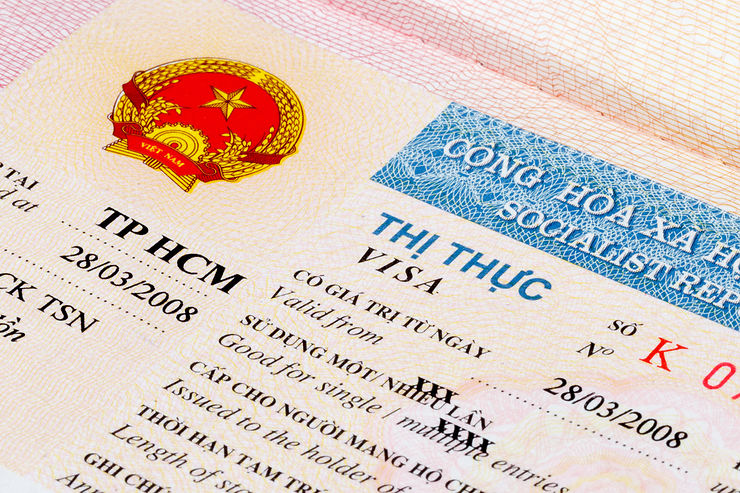
When you submit your Vietnam visa application at the Embassy, you will receive your document in the form of an adhesive sticker affixed to your passport. Due to the work done by the consular staff of the Vietnam Embassy, the costs are higher than the e-visa applied online or even the visa on arrival. You can get the following variants from the Embassy:
1 month validity (single entry)
1 month validity (multiple entries)
3 month validity (single entry)
3 month validity (multiple entries)
The 3-month visa actually only allows 30 days on Vietnamese territory but it can be extended twice to reach 90 days in total. Just go to the nearest immigration office and apply to extend your visa for $10.
CURRENTLY the Vietnam Embassy and Vietnam Consulate have not received instructions from the Vietnamese government to issue the 3 month visa.
If you want to stay more than a month in Vietnam, do not take a one-month visa thinking that it will be renewed twice to reach 3 months in total. To have a total of 3 months, it is imperative to apply to the Vietnamese Embassy or Consulate for a 3-month visa from the start. The classic one-month visa (single entry or multiple entries) is not, for the moment, extendable as it could be before the pandemic. Currently no tourist visa is issued by the Embassy or Consulate.
A 30-day period is to be observed between 2 visa exemptions of 15 days or between 2 e-visas and you cannot combine a 15-day visa exemption with an e-visa, there is also a 30-day period. between the 2. Moreover, an e-visa cannot be renewed on site, nor can it be extended.
APPARENTLY THE 30-DAY WAITING PERIOD NO LONGER APPLIES.
✔5-year visa exemption (reserved for people of Vietnamese origin)
Applicants eligible for the 5-year visa waiver are:
- Vietnamese nationals living abroad and foreign nationals of Vietnamese origin.
- The husband or wife and children of Vietnamese nationals or foreigners of Vietnamese origin.
The file to be submitted must contain the following documents:
- 1visa waiver certificate application form (Formulaire NA9).
- 2 4×6 cm passport photos (1 of which must be affixed to the form).
- the foreign passport or title in lieu of the passport whose validity is at least equal to 6 months from the date of entry into Vietnamese territory and a copy of this document for archives.
And what is most important, provide proof of Vietnamese origins by at least one of the following documents:
- Certificate of Vietnamese nationality.
- Vietnamese passport (valid or expired).
- Vietnamese identity card (valid or expired).
- Birth certificate.
- Voter’s card.
- Residence booklet.
- Pass issued by the South Vietnamese Government before 1975.
- Vietnamese identity card issued by the South Vietnamese Government before 1975.
- Birth certificate issued by the South Vietnamese Government before 1975.
- All documents issued by the competent foreign authorities and mentioning the Vietnamese origin or the nationality of Vietnamese origin of the holder.
* If the applicant does not have any document mentioned above, he can provide:
- a letter of guarantee from an association of Vietnamese in the country of residence (according to the model stipulated by law)..
- a letter of guarantee from a Vietnamese citizen (according to the model stipulated by law).
Once the file is complete, please make an appointment with the Vietnamese Embassy or the Vietnamese Consulate for the submission of the file. If this is not possible, you can send the file in letter followed by not forgetting to join a return envelope in letter followed also as well as a check of the amount of the expenses of file. Before the health crisis and the closing of the borders, these costs amounted to 25 € (check with the Vietnamese authorities if the price is still the same).
Health precautions
Vaccines
To go to Vietnam, there is no compulsory vaccine (except that against yellow fever if you come from a country in which the virus is present). Despite its geographical location in the middle of the tropical zone of Southeast Asia, entry into Vietnam does not require compulsory vaccinations for the French (the international vaccination card is not checked on arrival in the country) .
That said, no compulsory vaccine, but several are recommended by the health authorities, in particular those of the vaccination calendar and that against hepatitis A. Indeed, the climate, the fauna and the flora of Vietnam are totally different from those of your country. native country.
So to ensure the success of your stay in Vietnam and enjoy it safely, take advice from a vaccination center or from l’Institut Pasteur, and plan your vaccinations well before you leave!


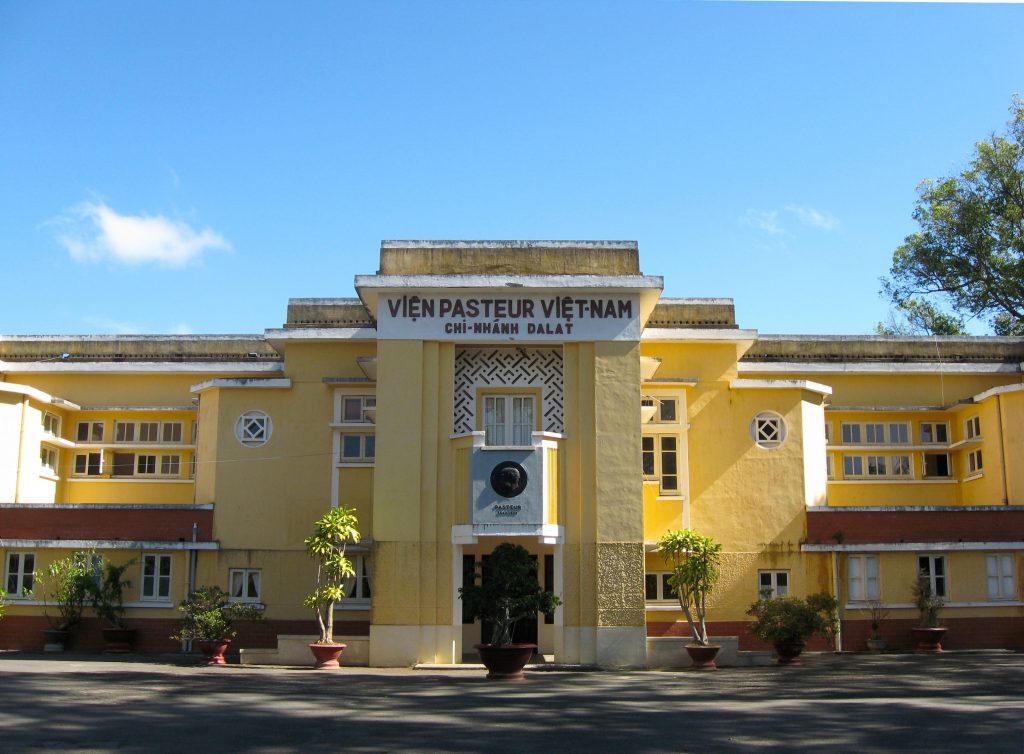
Here are the vaccines that are recommended by the Institut Pasteur.
✔ Hepatitis A vaccine
Vaccination against hepatitis A is generally recommended for all types of stay. It is advisable to get vaccinated against this viral disease which is transmitted by contaminated water and food. The vaccine must be done in the form of an injection, at least 15 days before your departure for Vietnam.
✔ Hepatitis B vaccine
Vietnamese authorities recommend that travelers get vaccinated against hepatitis B, especially for long or repeated stays. The 2 injections of the vaccine must be spaced one month apart, with a single booster 6 months later. If you need to be immunized quickly against hepatitis B, it is also possible to set up an express vaccination procedure.

✔ Vaccination against rabies
A recurrent infection in Asian countries, rabies is one of the vaccines that it may be advisable to take in the event of a prolonged stay. Rabies is transmitted through the bites and saliva of infected animals. The vaccine against rabies is given in the form of 3 injections, each spaced out by a few weeks.
✔ Typhoid
In the context of prolonged stays or in precarious hygienic conditions, the typhoid vaccine is strongly recommended, from the age of 2 years.
✔ Japanese encephalitis
In certain circumstances, especially when traveling in rural areas or in the event of expatriation, you may choose to be vaccinated against Japanese encephalitis. This virus is transmitted through mosquito bites: without a vaccine, it is therefore complicated to ensure your safety. Unless you act according to the preventive measures advised by the Vietnamese health authorities.
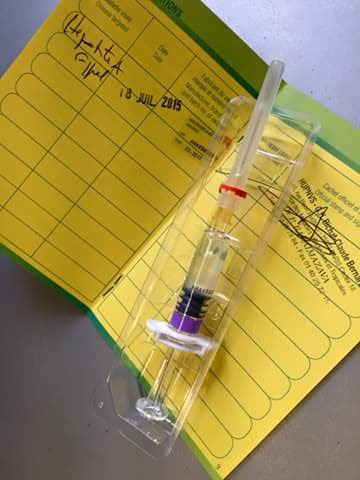

Important protection against mosquitoes
You must also take steps to avoid mosquito bites that transmit serious diseases, some of which have no treatment or marketed vaccine.
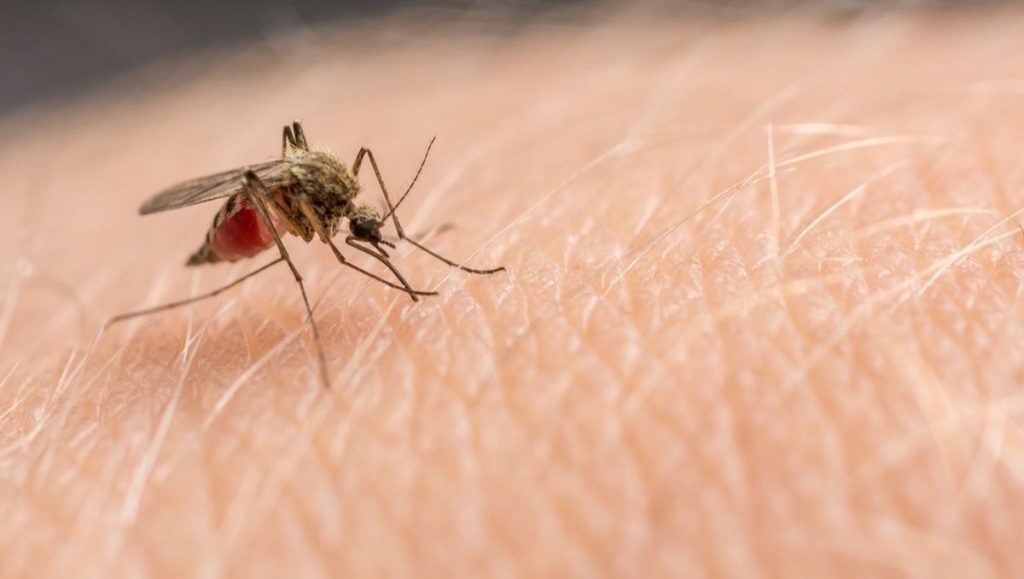
✔ Malaria
The situation of malaria in Vietnam is generally poorly understood by European doctors and, very often, their prescriptions are not adapted or are erroneous. Vietnamese malaria, certainly formidable, is present only in restricted areas: there is no malaria in the center of the big cities, nor in the tourist coastal cities, nor in the plains of rice fields. It is therefore only very exceptionally that you will be confronted with the problem of malaria.
Preventive treatment such as Doxycycline may be recommended if you are going to altitude.
✔ Zika virus
Vietnam is affected by the Zika virus. It is transmitted by the bite of daytime mosquitoes. The infection is most often asymptomatic. In 70% of cases the infection goes unnoticed. If they are there, the symptoms are generally moderate: fever, headache, joint pain… They are similar to those of dengue fever.
Only one protection for now: long clothes and tr mosquito repellent
✔The dengue
It is the infectious planetary disease that is experiencing the greatest expansion under the effect of global warming. Vietnam experiences epidemic peaks of dengue fever (also called tropical flu) in urban and semi-urban areas, especially in the south and during the rainy season. Unlike malaria, dengue fever is transmitted by daytime mosquitoes of the Aedes genus. The cases of victims are numerous. Children are particularly vulnerable.
There is currently no treatment or vaccine on the market. The only protection is to wear the most covering clothes possible and to spray mosquito repellent (tropical mosquito repellent) on the most exposed parts of your body. Think about it before you go out!

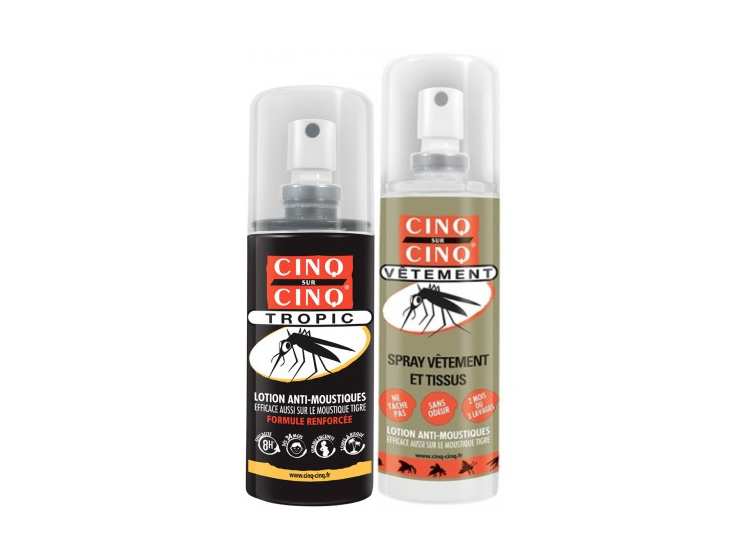
Health insurance

It is not always easy to choose the right insurance offer, which corresponds to your status in France or abroad. We often confuse travel insurance and international health insurance, but the difference is significant!
Here are some tips for selecting the insurance coverage solution that best suits your situation for your stay abroad:
✔ Travel insurance
Travel insurance is provided for short stays, of less than 90 consecutive days, and allows you to be covered if unforeseen events happen to you before and during your stay:
- before departure: medical emergency, such as hospitalization, causing the cancellation of the trip, for example.
- and once there: medical emergency, hospitalization assistance, repatriation, loss or theft of luggage or if your civil liability is engaged if you cause an accident, for example.
✔ International health insurance
International health insurance is provided for long stays or even expatriation and will act as the Social Security + complementary health duo to reimburse your health costs without being limited to emergencies.
Are you going for a short tourist stay of less than 3 months? travel insurance will probably suffice.
Advice : VPlease also check with your bank because you are often covered during your trip by your credit card if you paid for your stay with it. If this is not the case, you can take out specific travel insurance.
Some insurance companies are specialized in the field of travel insurance such as Chapka Assurances which aims to make travel insurance accessible, transparent and understandable to anyone wishing to travel, GObyAVA, AXA, AVA, April and many others … Because far from home, you will appreciate the comfort of Vietnam Travel Insurance, capable of intervening 7 days a week and 24 hours a day, quickly and efficiently in the event of a medical problem or the need for legal assistance.
QUELLES SONT LES CONDITIONS D’ENTRÉE AU VIETNAM ?
ACTUALISÉ LE 22/07/2022
COVID-19 guide for travelers to and within Vietnam — UPDATED as of 07/22/2022
Effective February 15, 2022, Vietnam lifted restrictions on carrying passengers on all domestic and international flights. However, travelers entering Vietnam must comply with applicable immigration and medical screening regulations.
No more restrictions are requested today (July 22, 2022).
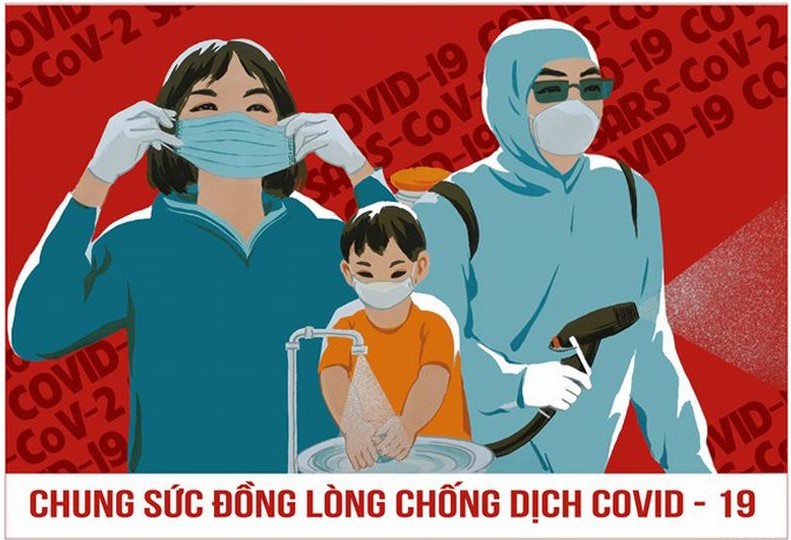
Vietnam Entry Requirements — UPDATED as of 07/22/2022
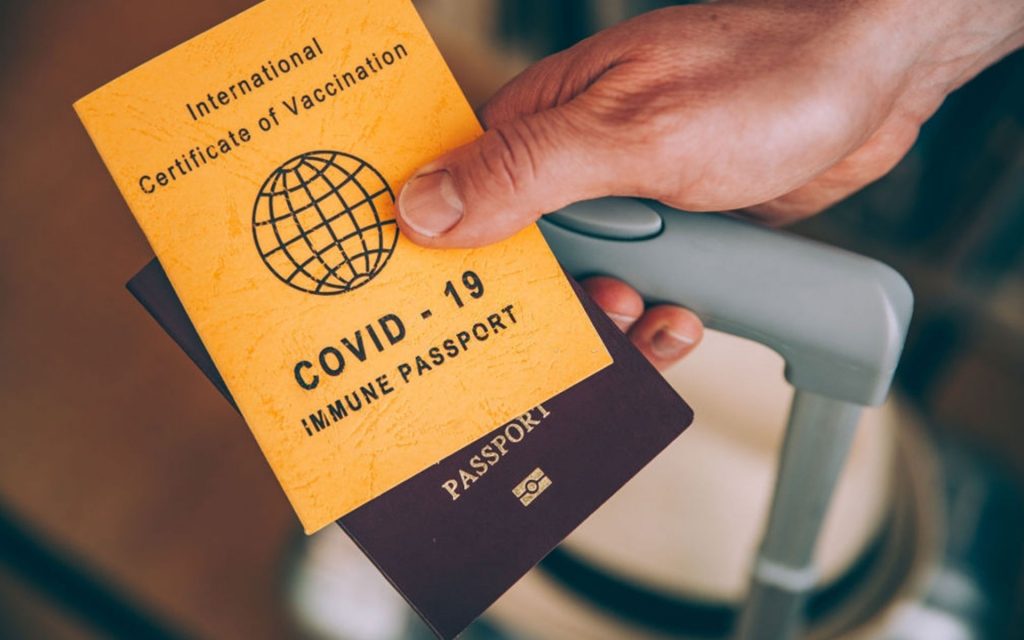
HEALTH CONDITIONS TO ENTER VIETNAM: NO VACCINE PASSPORT, NOR QUARANTINE!
➡ UPDATE (as of July 22, 2022) :
• No more restrictions are required to enter Vietnam!
Only airlines can request special conditions before boarding. It is therefore essential to inquire with the airline that will operate the France/Vietnam flight.
• Unvaccinated people are allowed to enter Vietnam without PCR or antigen testing.
• HIGHLY SUGGESTED RECOMMENDATION: Have medical/travel insurance that covers COVID-19 treatment with a minimum coverage of $10,000. It will be requested for your return.
➡ UPDATE (as of May 7, 2022):
• It is no longer necessary to make the health declaration to the Vietnamese Ministry of Health website (TỜ KHAI Y TẾ).
• Self-monitoring for the first 10 days of your trip is also removed.
• ONLY THE NEGATIVE RESULT OF A PCR TEST (72 hours before boarding) OR ANTIGENIC (24 hours before boarding) IS REQUESTED.
• Unvaccinated people are allowed to enter Vietnam with a negative PCR or antigen test result.
•RECOMMENDATION : Have medical/travel insurance that covers COVID-19 treatment with a minimum coverage of $10,000.
➡ UPDATE (as of April 1, 2022) :
• Apparently it is no longer necessary to have a Vietnamese sim card to activate the application on your smartphone, a WiFi network is sufficient.
• Self-monitoring for the first 10 days of your trip. In the event of symptoms (fever, cough, sore throat, etc.), notify the nearest health services.
• RECOMMENDATION :Have medical/travel insurance that covers COVID-19 treatment with a minimum coverage of $10,000.
➡ UPDATE (as of March 15, 2022):
• Have a negative SARS-CoV-2 test certificate issued within 72 hours (from the time of sampling) before boarding, for the PCR method or within 24 hours for antigen tests (quick test or rapid test) . Except for children under 2 years old.
• Make a health declaration on the Vietnamese Ministry of Health website TỜ KHAI Y TẾ. This is not an obligation of the Vietnamese government but the airlines request it, under penalty of being refused boarding, if it has not been done. And on arrival, customs officers may also ask you for it.
• Iinstallation of the application PC – Covid via Google Play (or Apple store) or the offical app PC-COVID (For this, buy a VIETNAMESE SIM CARD on arrival to activate this Vietnamese application).
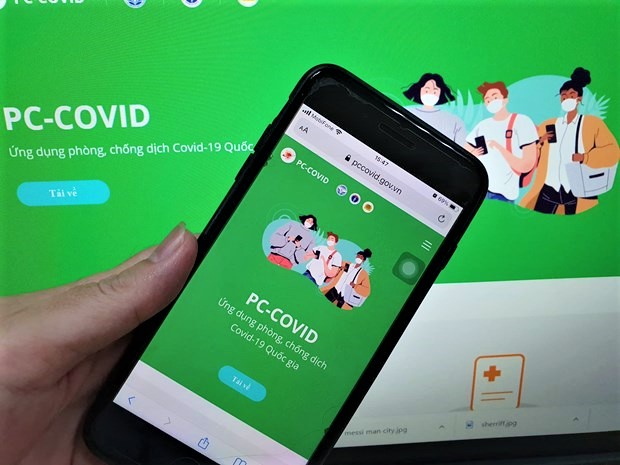

You are now ready to leave for a dream trip to Vietnam.



